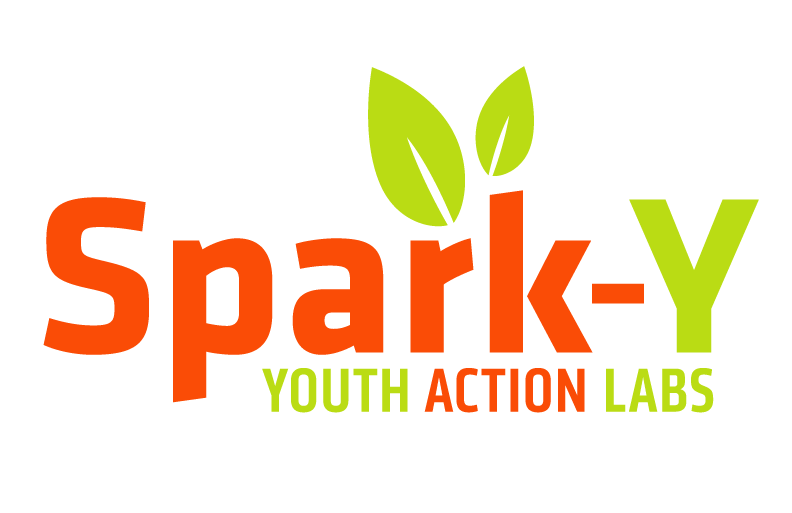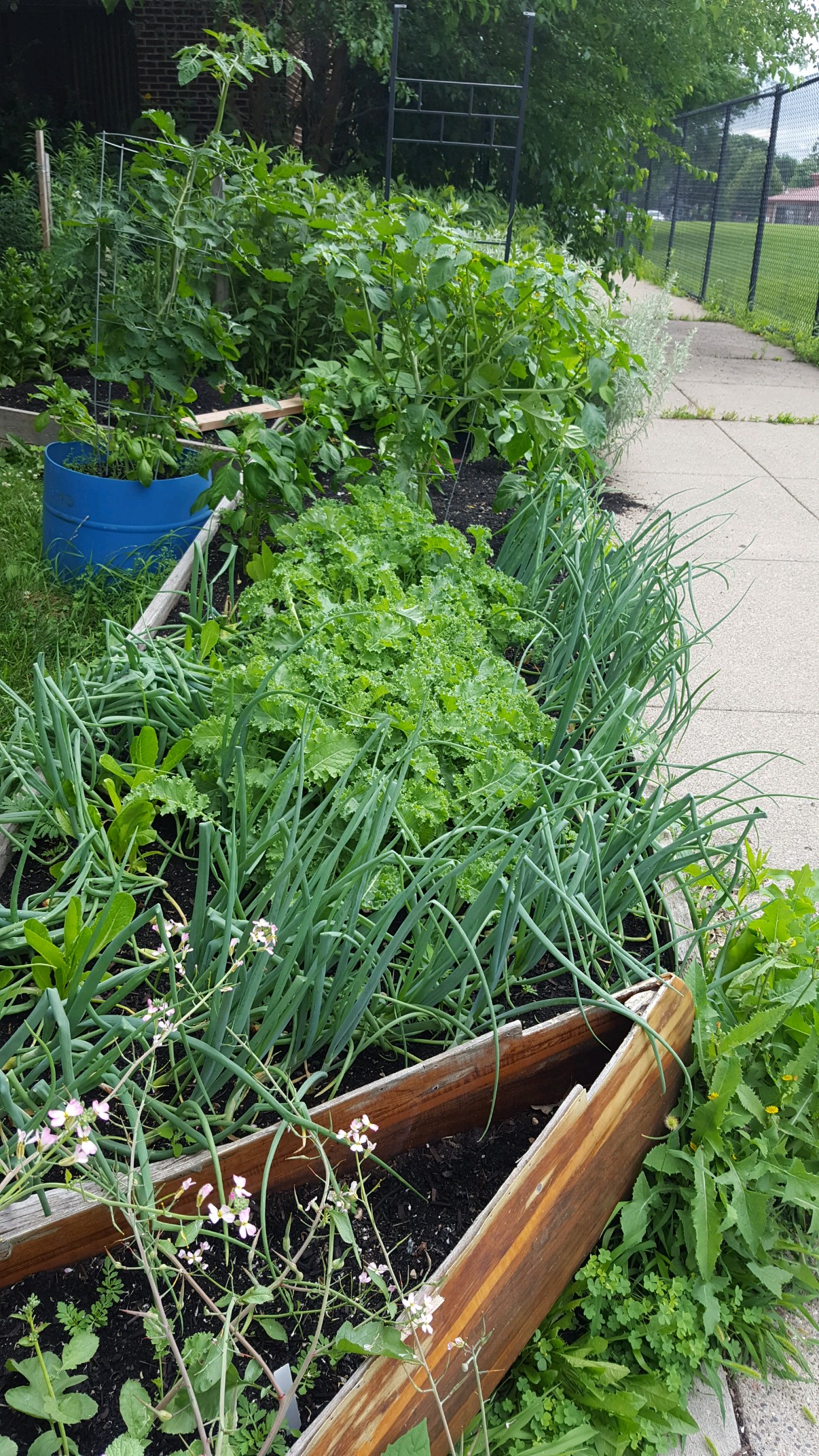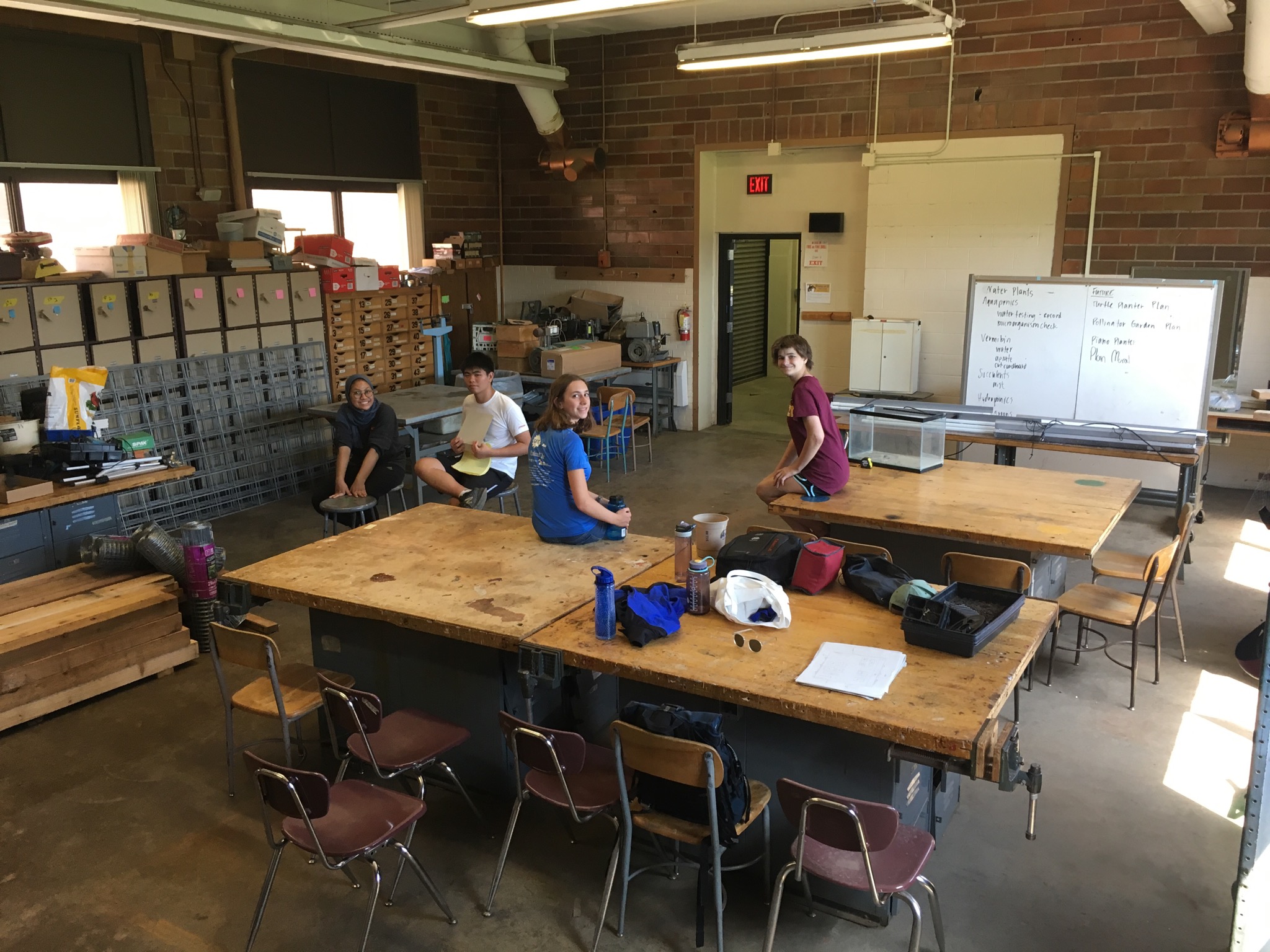The following blog post was authored : Maria Montero & Quinlan Genrich on the Minneapolis Culinary internship project. Additional Team Member: Amelia Bowser
Accessibility. This word was emphasized to us by Caitlin, our team lead and Urban Farm Manager, as well as our contacts at Minneapolis Public Schools (MPS) to whom we ultimately report. Through our summer internship with Spark-Y, we are working to create an accessible learning space for MPS students and community members. One that educates students on sustainable growing, eating, and living in an engaging manner outside of the typical classroom. Our internship focuses on two main strategies to encourage accessible sustainability. First, we care for the diversity of plants in the community garden space. Second, we have planned and designed an outdoor education space, which we will create by the garden and adjacent to the entrance of the MPS Culinary & Wellness Services building. Our main goal is to bring the youth and classrooms of MPS outdoors to the natural world and make learning accessible and enjoyable!
Community Garden
The Minneapolis Public Schools Culinary & Wellness Services contains a beautiful garden encompassing the front sides of the building. One of our responsibilities as part of our summer internship project is to maintain the communal garden space by weeding, planting, and harvesting the many varieties of fruits, vegetables, and herbs. As a group we stay very productive with hands-on work and assistance to our wonderful Urban Farm Manager and team lead, Caitlin. We have learned a lot from her urban farming expertise and how to best care for the growing space. There have also been many generous volunteers of all ages helping out and we could not be more grateful for their dedication and hard work! With the little time we have left of this internship experience, we cannot wait to continue our journey of enriching sustainable living, getting our hands dirty and digging into more garden exploration!
Outdoor Education Space
Within the dominant education model, experiential learning is often forsaken in favor of sitting inside at a desk seven hours a day, nine months a year. In high school, I remember asking my teachers each spring to take class outside to which the answer was usually “no, we have too much to do.” I remember savoring each 20-minute lunch when, on nice days, my friends and I would sit on the grass and try to avoid being hit by a stray frisbee. Through providing an outdoor educational experience, our internship challenges the idea that learning can only be accomplished by reading and lecturing in an indoor classroom. In addition to the hands-on garden space, we are working with MPS staff to design and create an outdoor classroom and produce preparation space. A table equipped with a sink will allow for easy produce cleaning and preparation. Stools will allow for flexibility of arrangement and use. Picnic tables will provide additional seating and table work space. A chalkboard will provide ample space for written instruction and information. Finally, a sign will welcome people to the garden and learning space, intentionally engaging the youth, the community, and the MPS Culinary employees. These components will work together to foster an exciting educational experience and support a tactile learning environment. We hope this space, as a departure from the traditional classroom, will engage visiting MPS students in a different way and inspire them to further explore the origin of their food, its preparation, and the meaning of sustainable living. Having spent the first half of the internship budgeting, proposing, and planning the outdoor classroom and produce preparation space, we look forward to seeing our plans come to fruition throughout the remainder of the internship!
Our participation in this Spark-Y summer internship will add value in our futures by fostering more sustainable living habits, knowing how the connection of people and nature can build community, and enhancing our interests in the environment. This internship has developed our problem solving skills and provided space for us to think about how a garden and education space can be engaging and accessible for everyone. We have explored what sustainability means to us and thought in a mindset that encompasses a world greater than the individual, inclusive of the natural world and the systems on which we rely. We will bring this sustainable mindset with us in our future careers and our expanded understanding of what constitutes education will continue to shape how we learn and interact with others.











